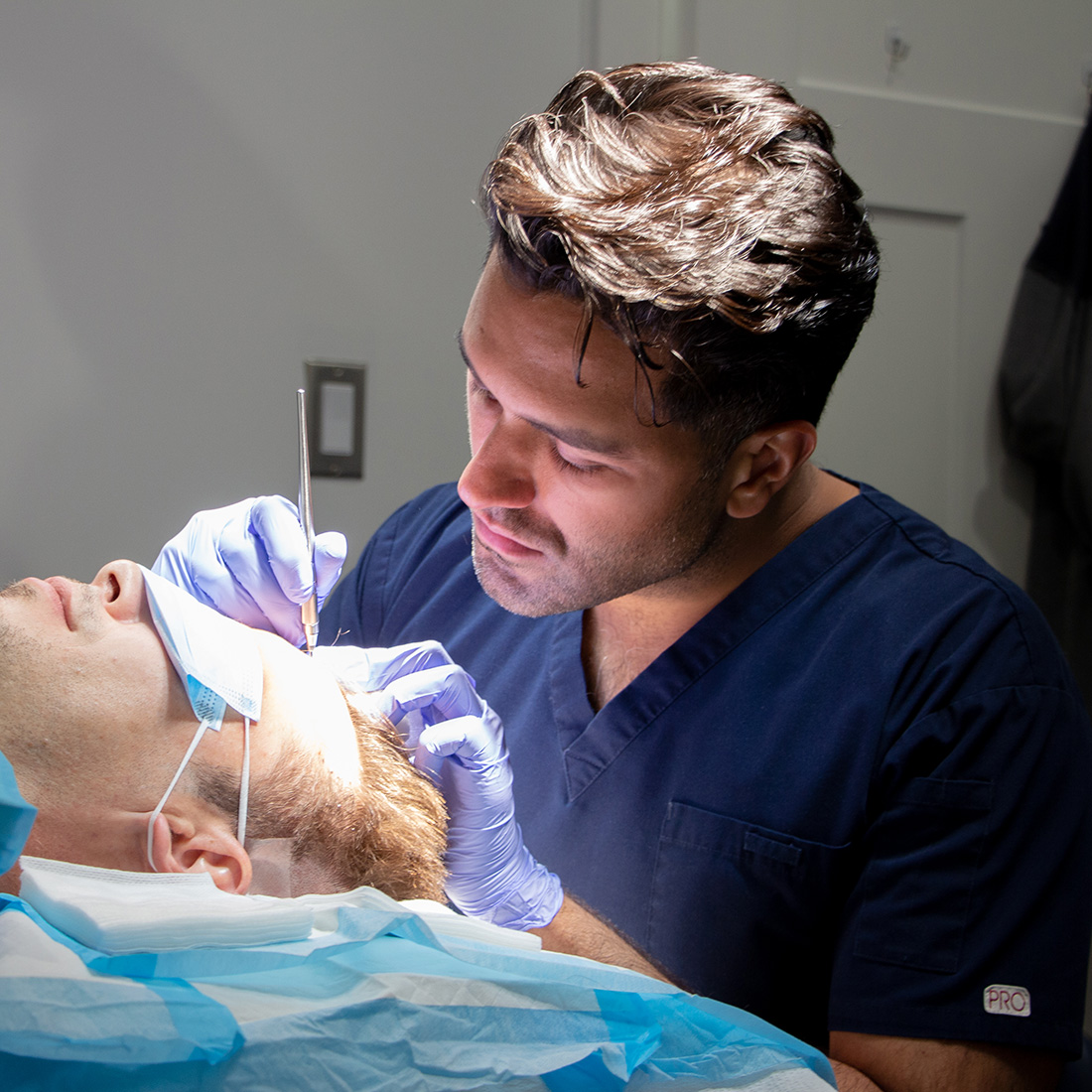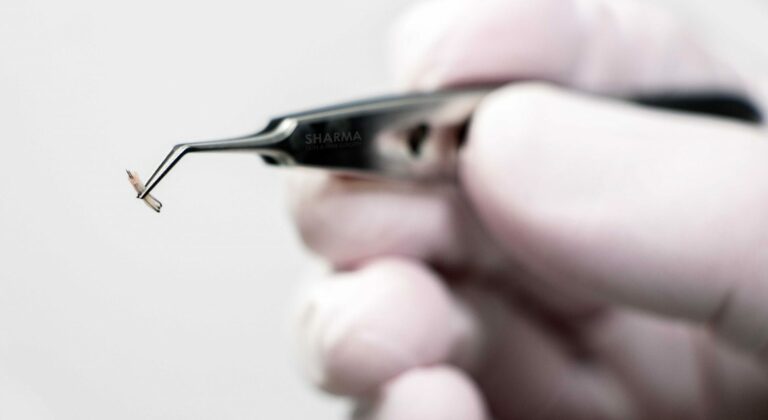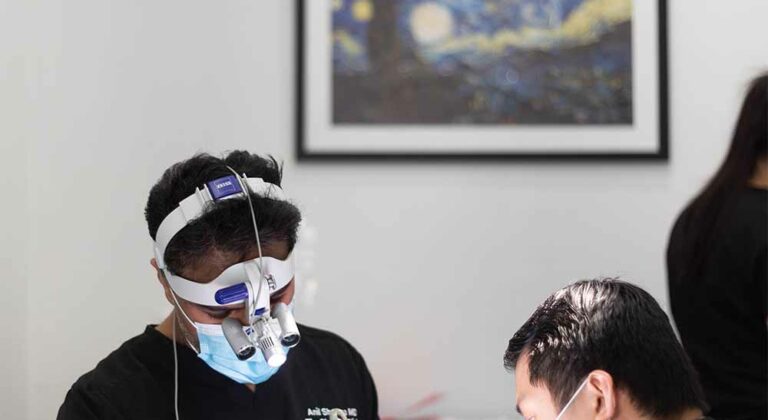The internet is rife with cautionary tales of botched hair transplants. This can leave many potential patients feeling anxious and uncertain about such a procedure. However, increasingly sophisticated techniques and high success rates mean many of these concerns can be put to rest.
Here, we’ll delve into the statistics and factors affecting success rates. We’ll also cover what makes someone a good hair transplant candidate, alternatives to hair transplants, and the information you need to decide whether a hair transplant is right for you. Let’s dive in.
Success rates of hair transplants
The success of a hair transplant is measured by multiple factors, including the density of the transplanted hair, its rate of growth, and the overall satisfaction of the patient:
- Hair density: This refers to the number of hair follicles that successfully grow in the transplanted area.
- Growth: Growth encompasses the speed at which the transplanted hairs begin to sprout and the long-term sustainability of these results.
- Patient satisfaction: Ultimately, patient satisfaction is the most crucial metric, determined by both the visual results and the emotional impact of the procedure.
Hair transplant success looks different in the short and long term. Patients are often surprised that in the short term, an initial shedding of transplanted hair follicles is a sign of a successful transplant. This is a completely normal part of the healing process which typically occurs within 2-4 weeks.
The real growth success can be seen in the months following the procedure. Survival rates of the implanted hairs can be as high as 60%, with full results becoming visible after 10 to 18 months.
What constitutes successful outcomes may differ from person to person, so success can be difficult to define. Due to differences in individual growth rates and expectations, hair transplants can be more successful for some than others. The key here is to have reasonable expectations about the procedure and to factor in steps that increase success rates.
Learn about hair transplant recoveryFactors affecting success rates
Several factors can influence the success of a hair transplant:
Surgeon expertise
The skill of the surgeon performing the procedure is paramount to achieving natural-looking results. Surgeons with more experience are likely to provide better outcomes due to their knowledge of optimal hair follicle placement and handling of complications during and after surgery. Advanced training in hair restoration technologies can also help surgeons deliver superior results. Dr. Sharma has ample training from prestigious institutions and has held numerous positions in the cosmetic surgery industry.
Advancements in transplant techniques
Over the years, modern techniques like FUE and FUT have improved the success rates of hair transplants. FUE, for instance, involves extracting individual hair follicles and transplanting them into thinning areas, resulting in minimal scarring and faster recovery times compared to older methods.
Patient factors
Genetics, overall health, and lifestyle — such as smoking, diet, and stress levels — can all impact the transplant healing process and the final results. Individuals with good general health, no underlying scalp conditions, and realistic expectations tend to be happier with their outcomes.
Post-procedure aftercare
Proper post-transplant care is essential to maximizing long-term results. While hair transplants offer permanent solutions, maintaining hair density may require a dedicated hair care routine and additional treatments. Adhering to a prescribed aftercare regimen, including sun protection, gentle handling, and specific shampoo usage, can significantly enhance the overall outcome.
Are hair transplants worth it?
The decision to undergo a hair transplant often comes with significant financial and emotional considerations.
The average cost of a hair transplant can range between $9,000-$17,000, depending on factors such as the extent of hair loss, the technique used, and the number of grafts required. While this may seem expensive, it’s important to consider that hair transplants provide long-term, permanent results, unlike other treatments that may require ongoing costs.
For example, medications like minoxidil (Rogaine) or finasteride (Propecia) may cost hundreds of dollars per year, and their effects don’t tend to be as long-lasting or as effective as a transplant. Furthermore, hair transplants often eliminate the need for future treatments, as transplanted hair typically continues to grow for life.
The psychological benefits of a successful hair transplant can also be significant. Many patients report improved self-esteem and confidence after the procedure. Hair plays an important role in an individual’s appearance, and for those suffering from hair loss, a restored hairline can have a profound impact on how they perceive themselves.
Alternatives to hair transplants
For those who are not candidates for a hair transplant or prefer non-surgical options, there are several alternatives to consider.
- Medications: Hair loss treatments like finasteride and minoxidil are popular choices for hair loss. Finasteride works by inhibiting the hormone responsible for hair thinning, while minoxidil stimulates hair follicles directly. While these medications are effective for many people, they may come with negative side effects like an increased risk of prostate cancer.
- Non-surgical solutions: Wigs, hairpieces, or scalp micro pigmentation are also viable options for those dealing with hair loss. These methods provide immediate results without the need for surgery, but they do not offer permanent solutions. They can, however, help manage hair loss in the short term or as a supplement to a transplant.
Making an informed decision
Ultimately, the decision to undergo a hair transplant should be based on a thorough understanding of your individual needs and expectations. It’s important to consult with a qualified surgeon who can provide a realistic outlook based on your hair type, degree of hair loss, and overall health. During a consultation, the surgeon will ensure the best possible outcomes, costs, and whether a hair transplant is the best solution for you.
Schedule a consultation with our dedicated team, and help pave the way to the best solution for you.
BOOK NOW
Talk to a Hair Transplant Expert
Are you looking for the most effective treatment plan to reverse the effects of hair loss? Dr. Sharma has a long-lasting commitment to offering the best services in the industry. Not only is he experienced with hair loss treatment, but he is passionate about helping each patient receive excellent results.

Share this:
Medically reviewed by
Updated on
Have a question?
Find out how we can help you look feel your absolute best
Contact us 780-476-7970


